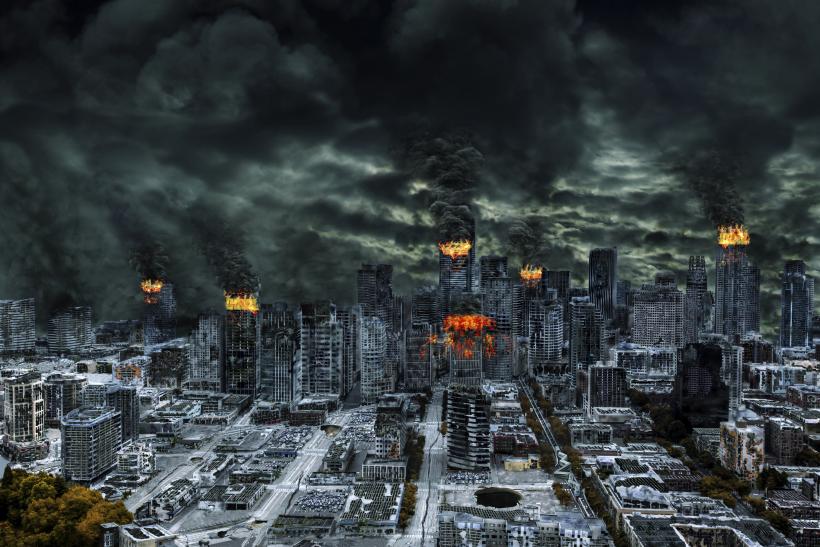
As the morbid and jaded creatures we are, humans really get a kick out of pondering our species’ ultimate demise. We have the usual cast of suspects—an infectious pandemic, climate change, meteor collision and nuclear war. Ok ok, I’ll throw alien invasion in there too. But it’s high time we give some love to some more obscure, but still scientifically plausible means of extinction. I mean why limit ourselves, really?
So here are four under-represented threats to human existence we can all happily ponder.
1. Crop Pandemic
With all the focus on a global pandemic infecting our bodies directly, we tend to overlook another major scourge lurking to indirectly drain our life force. We’re talking vegetative infection. Pandemic crop diseases can easily decimate an entire season’s worth of critical foods. Just ask the Irish.
And the increasing trend toward crop homogenization—since many food producers buy identical crop strains from seed corporations—means more of the food supply could be vulnerable to the same disease outbreak. Multiple crop pandemics could leave humanity helpless against starvation. Now that’s an inglorious way to go out.
2. Large Igneous Provinces
Remember the theory that the dinosaurs died out after a multitude of volcanic eruptions poisoned the atmosphere? That notion has waned in popularity of late, but it speaks to a real threat of atmosphere smothering. A variation of this possibility comes from large igneous provinces. This phenomenon could use a real name makeover, but don’t let its jargon-y title fool you—it’s no joke.
A large igneous province is a build up of rock that creates a crack in the Earth’s crust. Combined with volcanic activity, igneous provinces can cause lava, toxic gas and ash to ooze out into human-land. This slow spewing can take place over centuries, and over time could spoil the air and ruin the environment. This translates to another case of slow and agonizing die-out. But maybe scientists would at least have time to concoct space vessels to evacuate the rich. Fingers crossed!
3. Inter-Galactic Radiation Disaster
Sure there’s the nuclear variety of radiation disaster, but let’s not factor out space from the equation. You see, when dying stars go out, they do it with a bang—literally exploding to reach their demise. During this process, massive stars can also collapse to create a black hole and simultaneously emit two mega beams of energy that shoot out through space.
It’s conceivable that a star close enough to Earth could die in this particularly extravagant fashion (in fact, it happens all the time in the cosmos) and beam evil gamma rays onto our planet. The resulting radiation could fry our atmosphere and sizzle us right into oblivion—possibly with the ghosts of Hiroshima and Nagasaki jeering us as we melt. But hey, points for speedy death.
Or, a star explosion farther away could leave us human intact, but still take out our satellites and power grids. Cue horrifying post-apocalyptic scenarios.
4. Invasive Species
Sometimes the human capability to bend the natural order of things works out to our advantage, and sometimes it doesn’t. Big time. Invasive species are one example of ill-advised tampering. A plant or animal species residing in one locale may function in moderation in the ecosystem. But when suddenly dumped elsewhere—say, oh I don’t know, Florida—they run effing amok. With no natural predators, they’re suddenly free to unleash all kinds of gluttony and destruction upon the land.
Some particularly egregious invasive species in key food production sites could cause the collapse of delicate food webs. And we’re back to the slow starvation scenario.
Will Darwinism Reign Supreme?
The most probable of all these possibilities may be crop pandemic. But even then, it seems unlikely that disease would wipe out so much food that it kills all of us. Sure, we might get down to near-extinction levels, but we’ve done that before and still rose as a species from the wreckage. We’re like the cockroaches of the ape lineage. But come egregious climate change or a major meteor collision, I’ll probably be singing a different tune. (Like a dirge.)
Image: Thinkstock






